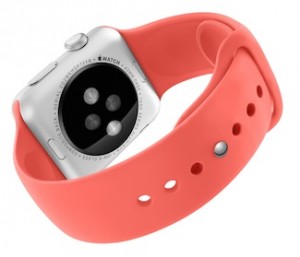 Johns Hopkins University is preparing to launch the first Apple ResearchKit study to incorporate the Apple Watch as a data collection device, according to a report from Apple Insider. Johns Hopkins declined to comment at this time.
Johns Hopkins University is preparing to launch the first Apple ResearchKit study to incorporate the Apple Watch as a data collection device, according to a report from Apple Insider. Johns Hopkins declined to comment at this time.
The study will be designed to help Johns Hopkins researchers learn more about epilepsy, according to the report. Johns Hopkins will work with Thread Research, who also worked with UCSF on the PRIDE study of LGBT health.
Participants in the study will wear an Apple Watch and will use its embedded sensors to collect heart rate sensor and accelerometer data. That will be combined with gyroscope data from iPhone and manual feedback in the app to track various biometrics during seizure episodes. The Watch will also use haptic feedback to encourage users to respond to survey questions promptly, something difficult to achieve during a traumatic experience like a seizure, Apple Insider's source said.
The study is set to launch on September 18, a possible hint that it will draw on new Apple Watch functionality that will be released in the meantime with the Watch OS 2 software update. Apple is set to host an event September 9 where it will review its newest offerings.
Apple ResearchKit went live in early March with five showcase studies that had been vetted and approved by Apple. They included a study on Parkinson's disease with the University of Rochester, a study on asthma with Mount Sinai, a study on breast cancer by the Dana-Farber Cancer Institute, a diabetes study conducted by Massachusetts General Hospital, and a heart health study by Stanford Medicine.
In mid-April, ResearchKit was released to the broad population of medical researchers, along with guidelines including a mandatory ethics review from an independent review board. The Apple Watch started shipping around the same time and has been used in a handful of clinical studies already, but we've yet to see a project combine both Apple Watch and ResearchKit.
Using mobile health, specifically wearables, in epilepsy research is nothing new. Most notably, MIT Professor Rosalind Picard has been working on it for a number of years across two different companies.The first was Affectiva, which ended up pivoting into advertising and dropping the project. More recently she's been at Empatica, which currently produces the E3, a clinical wearable for studying epilepsy, and Empatica Embrace, a forthcoming consumer device for people with and without epilepsy, which is currently set to ship to crowdfunding backers in December.




















